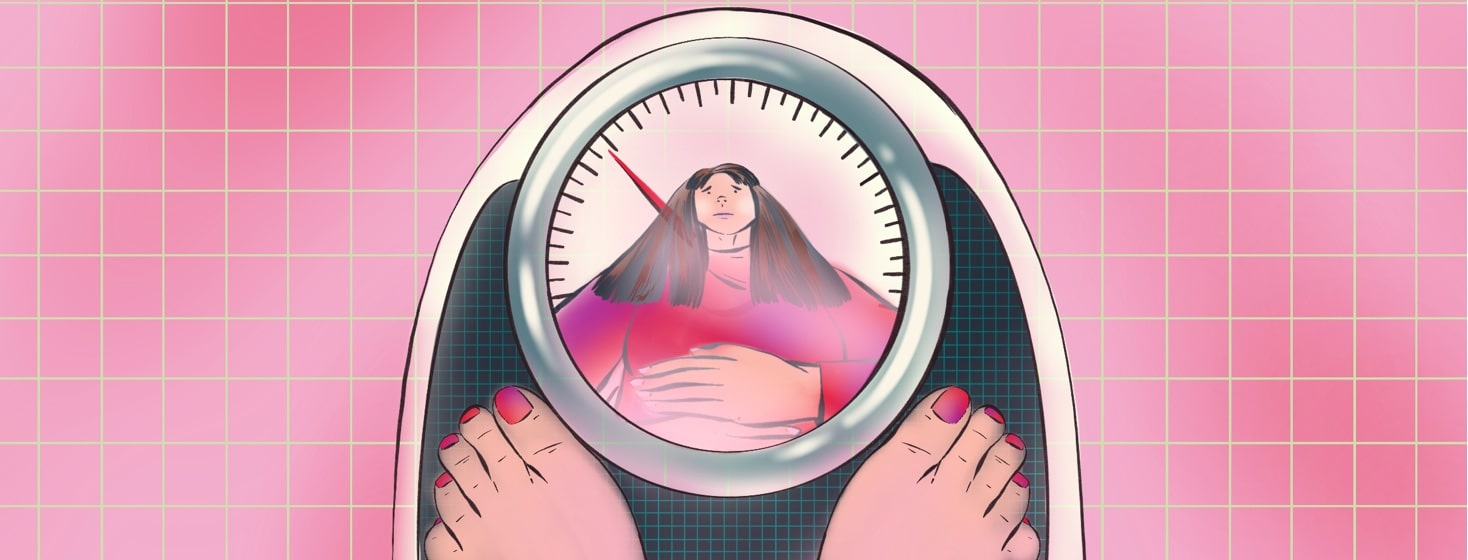How Healthy Habits-Not Just Weight Loss-Can Help NASH
NASH/MASH is more common in those who live in a bigger body. Which means the treatment recommendation usually sounds like...“You need to lose weight.” But, in case you haven’t noticed, losing weight isn’t easy--nor is maintaining weight loss.
For years, body size has been inaccurately simplified to “eat less and move more.” However, it’s just more complicated than that. Body size is influenced by a number of different factors, including genetics, stress and/or hormonal changes, environmental exposures, and more. While eating and exercise patterns play a role, so do many other things.1
Exercise and healthy eating in a bigger body
Since weight is such a focus in our society, we often overlook the fact that good health habits benefit ALL bodies, including bigger bodies. A review studies in 2018, showed exercise lowered the amount of fat in the liver.2 Study after study found this happened even if someone’s weight remained the same. In addition, many of the studies tried to determine what type of exercise was best and found little difference between the impact on liver fat and the type and intensity of exercise.2
Many studies link eating patterns to changes in liver fat. Increases in fruits, vegetables, whole grains, healthy fats, and legumes (like beans and lentils) can reduce the amount of fat in the liver. One study showed an 80% reduction in liver fat over a six-year period as people’s eating patterns improved.3
The bigger picture of health
Many factors can play into eating and exercise patterns. These factors also affect metabolic health and body size. These can include:
- Other health conditions
- Stress
- Sleep
- Social connections
- Hormone changes
Metabolic health is your body’s ability to keep blood pressure, cholesterol, and blood glucose in healthy ranges. People with NASH/MASH often have some problems with their metabolic health.4
Health habits matter, period
A slightly older study from 2012 found the higher the number of healthy habits a person had (such as eating fruits and veggies, exercising, not smoking, etc.), the lower their risk of dying-no matter their body size.5
In short, focus on how you’re caring for your body with NASH/MASH. Measure actions over outcomes. How often are you active? How many fruits and veggies are you getting in every day? What social connections have you created?
Expand your gauge for measuring health besides weight changes. How else can you determine how your health is doing? Will it be changes in your liver health or values? It could also be sleep and energy patterns, or your stamina or endurance while moving.
Focusing only on weight as the sole determinate of your health misses all these very important pieces of self-care and health.
Other considerations on weight loss
Again, because we are so fixated on weight in the medical world, it’s easy to get the impression that all weight loss is good or healthy. That’s not always true. For example, rapid weight loss without trying is a red flag--a sign that there may be other health issues going on.
Also, restricting calories too much can lead you to lose both fat AND muscle. 6,7 Lower muscle mass has been linked to metabolic diseases like diabetes and heart disease.8 A weight loss goal should also include a plan to keep your lean muscle mass, whether that's through weight lifting or eating more protein.
In some cases, restricting your food intake too much can actually cause your body to go into starvation mode, making weight loss even harder.7 Consulting specialists such as registered dietitians, physical therapists, and sports trainers can help support your health journey. The big takeaway is care for your body like the treasure it is.

Join the conversation